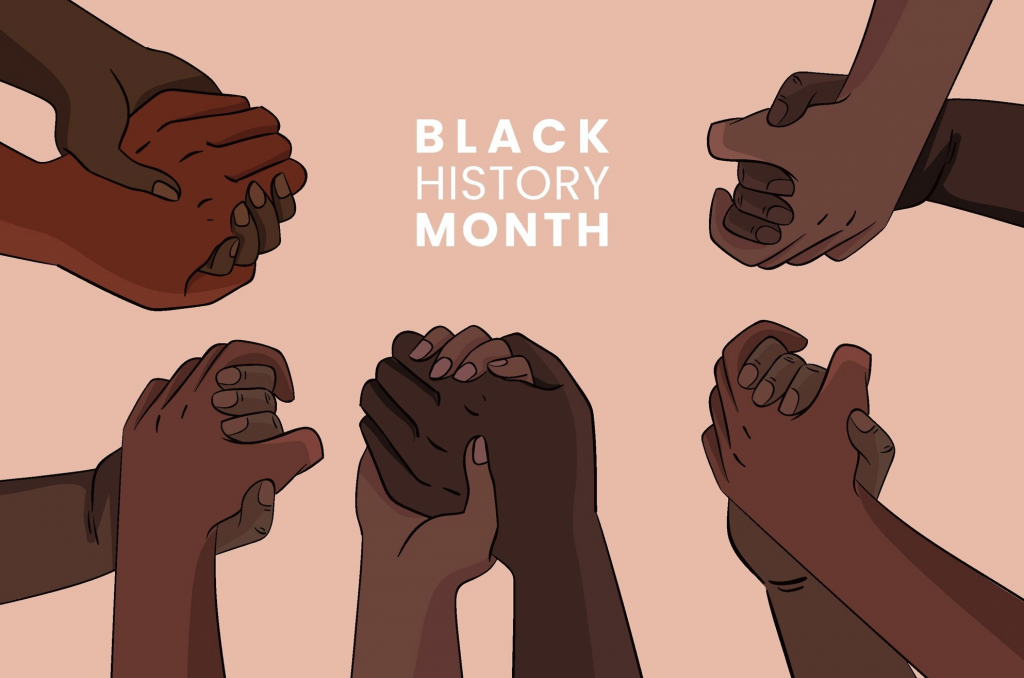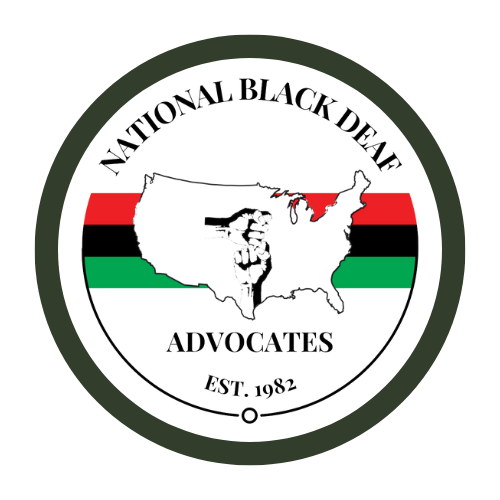At Sign Language Blitz we recognize our shared humanity, and our collective need to observe our specific cultural heritages & histories.
We support people across boundaries of race, faith, orientation and identities in the face of ongoing discrimination, injustice, bias, and lack of inclusion.
Though information and education exist, bias persists. Let’s all continue to champion diversity, equity, inclusion and dignity as we seek to shed light on our shared humanity.

In the vast tapestry of history, the narratives of the Black Deaf community often stand as hidden gems, waiting to be uncovered and celebrated.
As we embark on a journey through time, we will explore the rich and resilient history of Black Deaf individuals, shedding light on their triumphs, challenges, and the enduring spirit that has shaped their unique experiences.
Early Struggles and Triumphs
The intersectionality of being both Black and Deaf presented, and continues to present, a myriad of challenges throughout history. Limited access to education and societal prejudices placed individuals who identified as Black Deaf individuals in an uphill battle to find a way to communicate and advocate for change. However, amidst these struggles, there were pioneers who defied the odds. People like Andrew Foster, the first African American Deaf person to earn a Bachelor’s degree, blazed a trail for future generations.
Andrew Foster
Born in 1925 in Birmingham, Alabama, during the Jim Crow Law era, Foster faced numerous challenges growing up in a segregated and discriminatory environment.
When Foster was about 11 years old, both he and his brother contracted spinal meningitis and became deaf. Following this, he was sent to the Alabama School for Colored Deaf in Talladega, where he received up to a sixth grade education.
Due to the strict Jim Crow Laws in Alabama, Andrew Foster had to move to Michigan to continue his education. In Michigan, he attended the Michigan School for the Deaf until eighth. He spent his high school years splitting his time between the American Correspondence School, working at auto factories and restaurants, and attending the Detroit Institute of Commerce where he learned bookkeeping and business administration.
Despite these obstacles, Foster’s journey led him to Gallaudet University. After applying and being rejected several times due to his race, he was eventually accepted and went on to become the university’s first African American graduate with a Bachelor’s degree in 1954. He graduated in 1954 at the age of 29 with a degree in education.
Realizing the lack of educational opportunities for Deaf individuals in Africa, Foster embarked on a mission to establish schools for the Deaf on the continent. He founded more than 30 schools across 13 African nations, transforming the lives of countless Deaf children and empowering them through education. Andrew Foster’s legacy endures as a symbol of advocacy, breaking barriers, and championing the right to education for the Deaf community, particularly in Africa.
Civil Rights Movement and Advocacy
The Civil Rights Movement of the mid-20th century brought significant social change, and throughout Black Deaf individuals have played an integral role. New leaders emerged, advocating for equal rights, accessibility, and recognition within both the Black and Deaf communities. The establishment of organizations like the National Black Deaf Advocates (NBDA) marked a turning point, creating spaces for empowerment and collective action.
National Black Deaf Advocates
Founded in 1982, NBDA has played a crucial role in addressing the unique challenges faced by Black individuals who are Deaf or hard of hearing.
The organization focuses on promoting cultural awareness, fostering inclusivity, and advocating for equal opportunities for Black Deaf individuals in various aspects of life, including education, employment, and healthcare. NBDA also strives to empower its members through community engagement, mentorship programs, and networking opportunities.
By raising awareness about the intersectionality of race and Deafness, NBDA contributes significantly to the ongoing dialogue surrounding diversity, equity, and inclusion within the Deaf community and society at large.

Black American Sign Language and Cultural Expression
Art and culture have always been powerful mediums for expression, and the Black Deaf community has contributed significantly. From visual arts to literature, Black Deaf identified artists have shared their unique perspectives, enriching our collective cultural heritage. The emergence of sign languages within the Black D/deaf community, such as Black American Sign Language (BASL), reflects a distinct linguistic and cultural identity.
Education and Innovation
In overcoming barriers to education, Black Deaf scholars have made noteworthy contributions to various fields. The achievements of individuals like Dr. Glenn Anderson, the first Deaf African American in the United States to achieve a doctorate degree, and Dr. Carolyn McCaskill, a prominent linguist, underscore the intellectual prowess within the Black Deaf community. Their accomplishments challenge stereotypes, and inspire future generations.
Dr. Glenn Anderson
Dr. Glenn B. Anderson is a trailblazing figure known as the first Deaf African-American in the United States to achieve a doctorate degree.
Born and raised on the South Side of Chicago, he overcame adversity after becoming Deaf at the age of seven. Guided by his parents’ wisdom, who emphasized the need to be “twice as good,” Dr. Anderson earned his bachelor’s degree in Psychology from Gallaudet College in 1968 and a master’s degree in Rehabilitation Counseling from the University of Arizona in 1970.
Throughout his career, he held significant roles, including Vocational Rehabilitation counselor in Detroit and Coordinator of the Referral Counseling Program at New York University’s Deafness Research and Training Center.
In 1982, Dr. Anderson made history by obtaining his doctoral degree in Rehabilitation Counseling from New York University. He served as Director of Training at the University of Arkansas Rehabilitation Research and Training Center from 1982 to 2008.
Dr. Anderson’s impact extends beyond academia; he played pivotal roles in Gallaudet University’s Board of Trustees, including a 12-year tenure as board chair. A prolific author, he wrote “Still I Rise! The Enduring Legacy of Black Deaf Arkansans Before & After Integration” in 2006.
Dr. Anderson remains an active member of the Deaf community, serving on the Board of Directors of the National Black Deaf Advocates and receiving numerous prestigious awards for his contributions and leadership.
Carolyn McCaskill
Carolyn McCaskill is a distinguished figure in the field of linguistics, recognized for her groundbreaking work in American Sign Language (ASL) and Deaf studies.
As a Deaf African-American scholar, she has significantly contributed to our understanding of the linguistic and cultural nuances within the Deaf community. McCaskill’s research delves into the intricacies of ASL as a distinct language with its own grammar, syntax, and cultural variations. Her expertise extends to exploring the intersectionality of race and Deaf identity, shedding light on the experiences of Black Deaf individuals.
McCaskill has played a crucial role in elevating the visibility of Deaf culture and language diversity, challenging misconceptions and promoting inclusivity. Her work not only advances academic knowledge but also fosters a deeper appreciation for the richness and complexity of Deaf linguistic and cultural landscapes. Through her research, advocacy, and educational efforts, Carolyn McCaskill has left an indelible mark on the study of ASL and the broader Deaf community.
Challenges Today and Moving Forward
Despite all of this progress, challenges still persist for Black Deaf individuals. Disparities in healthcare, education, and employment opportunities continue to be areas of struggle and concern. It is crucial to acknowledge these challenges while fostering an inclusive society that values, and supports, the diversity of the Black Deaf experience.
As we reflect on the timeline of Black Deaf history, it becomes evident that the journey has been marked by collective resilience, strength, and triumph. To honor the pioneers who paved the way and acknowledge the ongoing contributions of the Black Deaf community, let’s highlight, and uncover, these journeys and triumphs. They are a reminder that history, when fully explored and understood, can serve as a catalyst for positive change and inclusivity.



